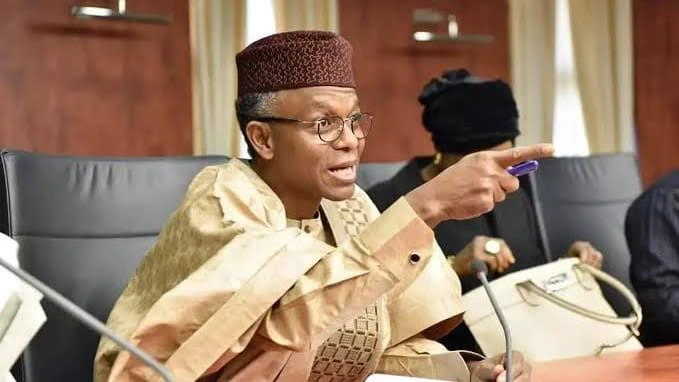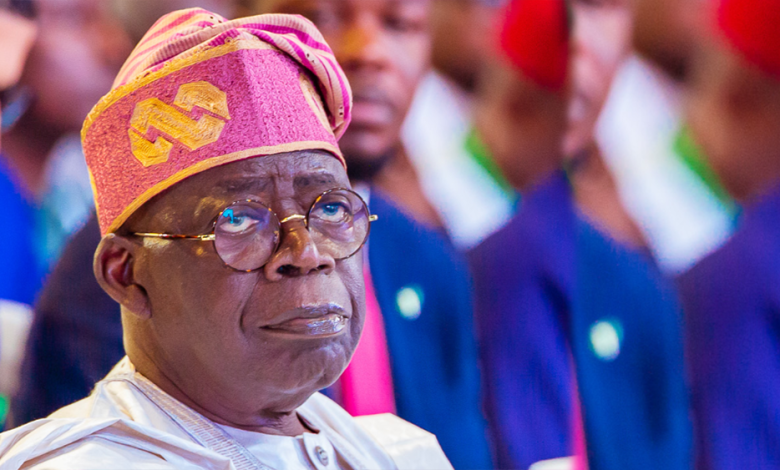Uncategorized
Tax Reform Bills Of Trouble

☆☆☆Presidency Sways Public Opinion.
☆☆☆NAS caves In As Opposition Weakens.
- ☆☆☆Gov Zulum Denies Opposing Tinubu’s Administration
By: Our Special Correspondent.
Public discourse has been dominated by the prospects and disadvantages of four new bills, initiated by the presidency and submitted to the National Assembly for passage.
In the Senate, the bills have controversially passed second reading and referred to the Senate Commuttee on Finance, for further legislative action.
In the House of Representatives, however tempers are still flaring, as the leadership seems to have failed to Cajole members into accepting its passage.
But feelers indicate that, despite the opposition mounted by key Northern figures and interest groups, against the four tax bills, they may still be passed.
This, fact derives from an emergent narrative, from no less influential Northern voices and interest groups in favor of the four bills.
Our. Correspondent reports that the presidency may have done her own homework by recruiting pundits and tax professionals to enter appearances on television and radio and to author newspaper columns arguing in favor of the bills.
Trends in public discourse seem to counter earlier sentiments expressed by key Northern figures, that, the bills seek to estrange the northern region.
Initial arguments suggest that, the North, may find herself locked in an “existential” threat, posed by a possible reduction in FAAC allocations, and disproportionate sharing of tax accruals if the bills, are passed.
They also fear that the provissions of the bills could lead to the abolishment of certain agencies, from which the region enjoys comparative favors.
Former Vice President, Atiku Abubakar, former Sokoto State Governor, Aminu Tambuwal, Borno State Governor, Professor Babagana Umara Zulum and many others have been in the forefront of arguments against the bills.
They separately re-echoed earlier positions canvassed by the Northern Elders Forum, the Northetn Governors Forum, and the National Economic Council, all of which called for the withdrawal of the bills.
All three bodies had argued that the bills were ill timed, and wider consultations are required to allow their passage.
But proponents of the bills on their parts argue that the fears being expressed are misplaced, stressing that Nigeria’s tax administration is flawed and at variance with global best practices.
The arguments for and against are coming at a time the two chambers of the National Assembly are sharply divided over the bills.
And just while the Presidency seems to be winning the battle, Borno State Governor Professor Babagana Umara Zulum has explained that his call for a broader consultation on the proposed tax reform bill currently under consideration by the National Assembly was in good faith.
A press statement by his special adviser on Media and Stategy, Dauda Iliya, on Monday, stated that the governor was not in any way opposed to the policies of the Tinubu administration.
The release said, “Governor Zulum
Spoke during an appearance on Channels Television’s Sunday Politics. The Governor underscored the importance of stakeholder engagement to address concerns and misconceptions surrounding the bills.
“Consultation is a cardinal principle in any democratic society,” Governor Zulum argued. “We need to take the time to understand the nuances of the bill and ensure all contentious areas are addressed before implementation.”
The governor expressed particular concern over the provision that allocates 60% of Value Added Tax (VAT) revenue based on derivation.
He warned that such a policy would disproportionately benefit states like Lagos and Rivers, potentially leaving other states at a disadvantage.
“The VAT provision, as currently proposed, suggests that only a few states will benefit significantly,” Governor Zulum explained. “This is why we should not rush the process. The goal is to ensure fairness and inclusivity in our tax reforms.”
Governor Zulum also advised that contentious aspects of the bill that could hinder national growth and development should be amended, emphasizing the need for a balanced approach.
“Am not Against President Tinubu’s Administration”
Governor Zulum dismissed insinuations suggesting he is opposed to President Bola Ahmed Tinubu’s administration.
He clarified that his comments were intended to advocate for a more inclusive approach to the proposed bill.
“There is a misconception that the North is against the President,” Zulum said. “This is far from the truth. The North contributed 60.2% of his votes, which underscores our support. My appeal to the President is to consider the challenges faced by some states and work towards solutions that benefit the entire country.”
Advancing Agriculture in Borno State
On agricultural development, Governor Zulum highlighted his administration’s investments in modern irrigation farming, aimed at boosting food production in areas like Damasak, Baga, and other parts of Borno State.
“By the end of my tenure, Borno will be a net exporter of crops such as rice, wheat, sorghum, and maize,” the Governor announced.
He revealed that 16 kilometers of rice fields have been cultivated in Damasak, an area once severely impacted by insurgency.
“This progress was made possible through government support and collaboration with the military, resulting in a bumper harvest this year,” Zulum added.
He acknowledged the Federal Government’s provision of inputs and fertilizers, which further bolstered agricultural activities.
Commendation for Security Forces and Citizens
Governor Zulum expressed gratitude to the military, Civilian Joint Task Force (JTF), hunters, vigilantes, and the resilient people of Borno State for their efforts in restoring peace.
“Insurgency in Borno has reduced by about 90%,” he remarked. “This achievement is a testament to the dedication and gallantry of our security forces and the unwavering spirit of our citizens.”
Uncategorized
We’ve Known Each Other Since the 90s; I’m Qualified to Call Him a Scumbag – El-Rufai

Fabian
Former Kaduna State Governor and former Minister of the Federal Capital Territory, Mallam Nasir El-Rufai, has weighed in on the Senate’s decision to reject the inclusion of real-time electronic transmission of election results in the proposed electoral reforms.
Speaking in an interview with Trust TV, El-Rufai was asked to react to reports that some members of his party, the African Democratic Congress (ADC), including Peter Obi, staged a protest at the National Assembly on Monday over the issue. In his response, he stressed that electoral reforms must be approached transparently and without undue external influence.
El-Rufai expressed confidence that the Senate’s electoral committee would eventually recommend the reinstatement of the provision for real-time electronic transmission of results.
He noted that many senators are experienced public officials who have previously served as governors, ministers, and legislators, and are genuinely committed to strengthening Nigeria’s democracy. However, he argued that their efforts are being overshadowed by the actions of the Senate leadership, including Senate President Godswill Akpabio.
According to El-Rufai, the controversy should not be blamed on the Senate as an institution but on its leadership. He alleged that the presiding officer was acting under external pressure and not in line with the collective will of the majority of senators.
He further predicted that when the Senate reconvenes, lawmakers would be forced to unite, resist such pressure from the leadership, and ensure that the proposed reforms are not undermined.
In a strongly worded remark directed at Akpabio, El-Rufai said:
“I do not consider him distinguished. We have known each other since the 90s. He knows how far we’ve been through, and I think I am qualified to call him a scumbag—and he knows why.”
Uncategorized
Electronic Transmission: This Is Just a Warning Protest, We’ll Wait Till Tomorrow – Isaac Fayose

Fabian Apechihin
Businessman and activist Isaac Fayose has described Monday’s protest at the National Assembly complex as only a warning, insisting that more action may follow depending on the outcome of lawmakers’ deliberations.
A cross-section of Nigerians on Monday morning converged on the National Assembly to demand that electronic transmission of election results be made compulsory in Nigeria’s electoral laws.
Although the Senate has issued several clarifications amid reports that it rejected electronic transmission of results, protesters maintained that lawmakers must go further by explicitly inserting the phrase “real-time electronic transmission” into the proposed legislation.
In response to the public outcry, the Senate announced on Sunday that it would hold an emergency plenary session on Tuesday to address the concerns.
Speaking to journalists during the protest, Fayose said the decision taken at the emergency sitting would determine whether the demonstrations would continue.
“We all know what happens in a collation room,” he said. “A collation room is where you soak garri with water at night and by morning it has swollen and turned into eba.
“For Nigerians to be satisfied, what we need is electronic transmission of results. They are already trying to deny it. Let’s wait till tomorrow. This protest is just a warning.”
Fayose also questioned the logic of abandoning electronic transmission after huge investments had been made.
“Something we spent close to a trillion naira to achieve, you now want to throw it away? That’s like taking our money and dumping it in the gutter. It cannot happen,” he added.
Uncategorized
US Judge Issues Final Ultimatum as FBI, DEA Delay Release of Tinubu Records

Fabian Apechihin
A United States federal judge, Beryl A. Howell, has sharply criticised the Federal Bureau of Investigation (FBI) and the Drug Enforcement Administration (DEA) over what she described as deliberate delays in releasing records related to Nigerian President Bola Tinubu.
The documents are being sought through a Freedom of Information Act (FOIA) request filed in 2022 by transparency advocate Aaron Greenspan, with backing from investigative journalist David Hundeyin. The records are expected to provide details on a narcotics-related case from the early 1990s that led to Tinubu forfeiting $460,000 to the U.S. government—allegations he has consistently denied.
In a ruling delivered on February 3, Judge Howell of the U.S. District Court for the District of Columbia rebuked both agencies for repeatedly missing court-ordered deadlines, noting that the case has dragged on for more than three years without substantial progress.
She subsequently imposed new deadlines, warning that further delays would no longer be tolerated.
Greenspan, the founder of transparency platform Plainsite, filed the FOIA request in June 2022. In 2023, the FBI announced it would release approximately 2,500 pages of Tinubu-related records in monthly batches of 500 pages. However, the process stalled after Tinubu opposed the disclosure, requesting a delay pending the outcome of a Nigerian Supreme Court case challenging his election victory. He argued at the time that releasing the records would “adversely affect” him.
Although Judge Howell approved the temporary pause and Tinubu’s election was later upheld, the FBI and DEA continued to seek extensions, further slowing the release of records linked to longstanding allegations of involvement in cocaine trafficking.
Court filings show that the FBI was expected to submit an updated status report in May 2025, but delayed until January 2026, when it sought yet another extension to February—prompting sharp criticism from the court.
“Defendant FBI has produced no records, despite initially anticipating completion of searches by August 1, 2025,” Howell stated, adding that deadlines had been repeatedly shifted with “minimal explanation.”
She further noted that, like the DEA, the FBI had failed to provide a credible timeline for completing the processing and release of the requested documents.
Judge Howell also dismissed the DEA’s justification for withholding documents for more than six months under the guise of inter-agency consultations.
“Defendant DEA has produced some documents … but has repeated the same explanation for six months and four joint status reports concerning twelve remaining pages not yet released,” she said.
The court ordered the DEA to provide Greenspan with a Vaughn index detailing the legal basis for redacting 50 pages and withholding 172 pages of the records. The agency was also directed to submit sworn affidavits explaining, page by page, when the remaining documents were sent for consultation, expected review timelines, and steps taken to expedite the process.
Similarly, the FBI was ordered to file sworn statements accounting for its repeated failure to meet court deadlines and to begin releasing all non-exempt Tinubu-related records. The bureau was instructed to deliver an initial batch within two weeks of January 30, 2026, submit a detailed schedule for releasing the second batch of 500 pages by March 13, and complete full disclosure by June 1, 2026.
Judge Howell further ordered both agencies to file joint status reports every 14 days, starting February 27, until all responsive records have been processed and released.
-

 Uncategorized5 years ago
Uncategorized5 years agoFG, states urged to harness flooding for ranching, others with technology – Agbaje
-

 Headlines10 years ago
Headlines10 years agoBreaking: EFCC seals Borno House of Assembly, as Hon members take to their heels
-

 News12 years ago
News12 years agoNigeria Security Operatives Stage Manhunt For Homosexual Perpetrator
-

 News9 years ago
News9 years agoHow 21-year-old Girl fled community over accusation of lesbianism
-

 News10 years ago
News10 years agoYobe Gov Moves Against Deputy
-

 Opinion7 years ago
Opinion7 years ago7 signs she has friend zoned you
-
Technology4 years ago
Online job placement company headhunts women
-

 Headlines10 years ago
Headlines10 years agoBorno Dep Gov Abducts Another Church Leader





